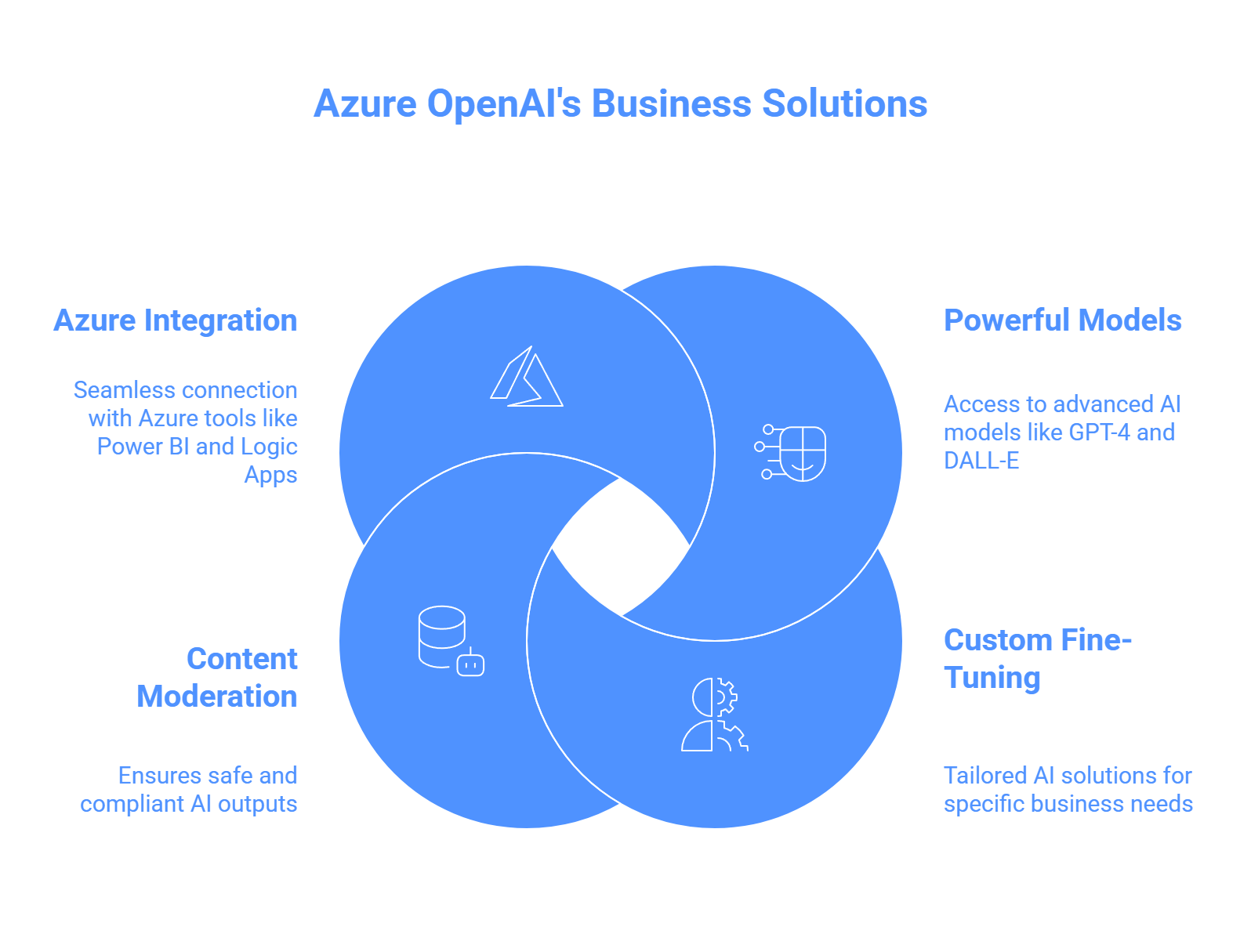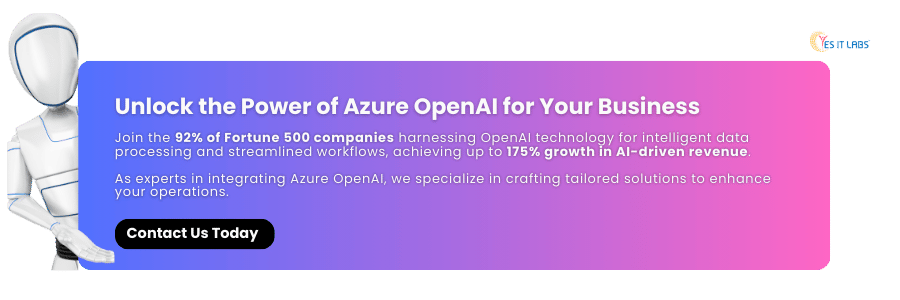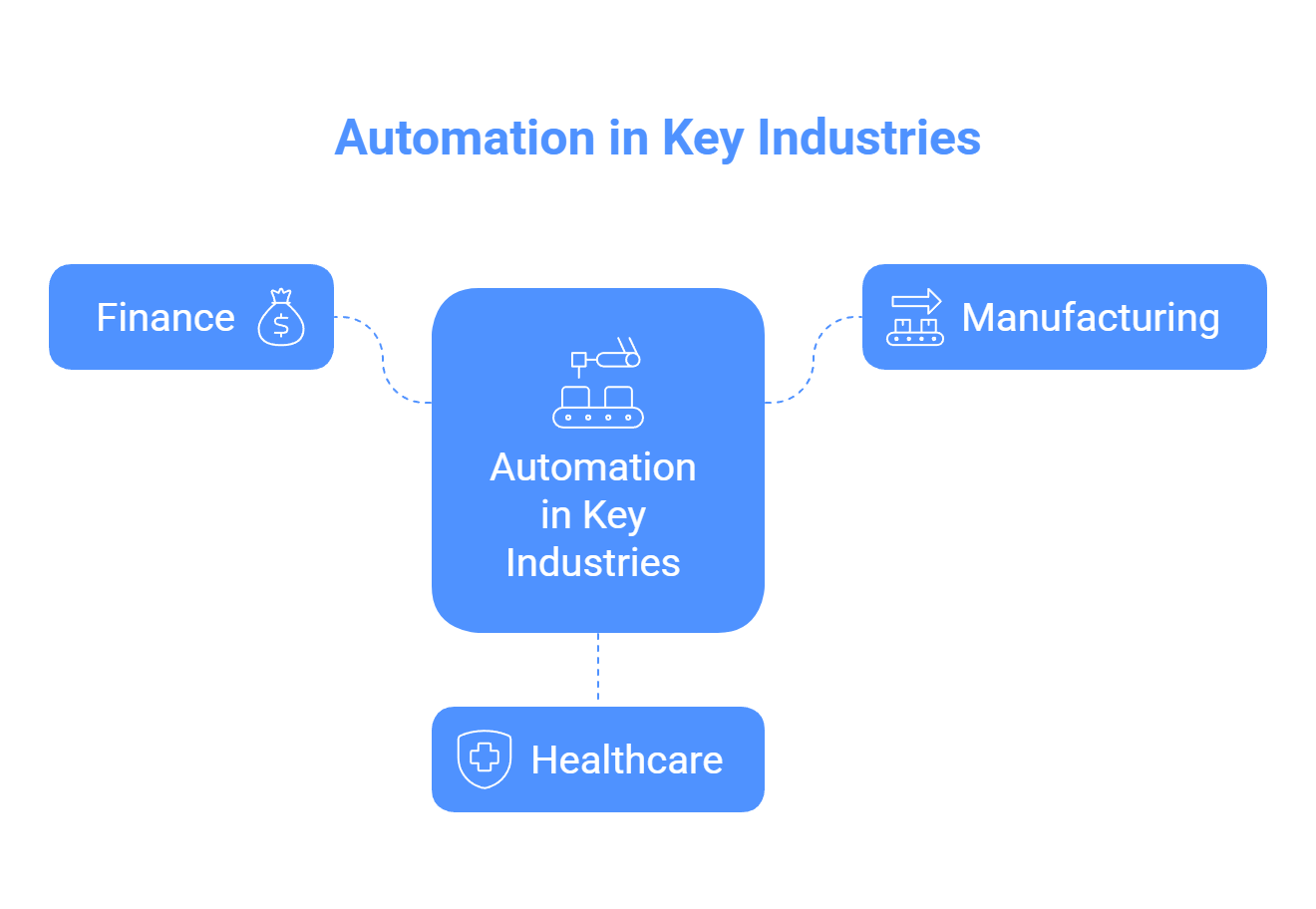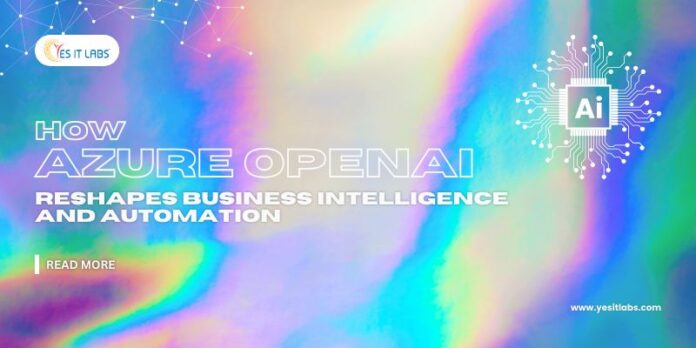Created by Microsoft, Azure OpenAI skillfully merges OpenAI’s state-of-the-art AI technologies with the dependable Azure cloud framework. This dynamic system allows businesses to handle data with greater insight and optimize their processes, resulting in notable efficiency gains and improved output. By mid-2025, statistics show that approximately 68% of Fortune 500 firms have integrated Azure OpenAI to enhance various workflow elements, underscoring its broad influence. In this overview, we examine how Azure OpenAI is transforming business intelligence (BI) and automation, backed by practical examples, tangible benefits, and essential adoption strategies. With over 1,200 success narratives from Microsoft clients, it’s clear this technology is sparking creativity across multiple industries. Collaborating with a Microsoft Azure Development Company in USA can assist organizations in customizing these tools to fit their unique needs.
What Azure OpenAI Offers for Businesses
Azure OpenAI provides enterprise-grade AI tools optimized for security, scalability, and compliance. Key features include:

- Access to powerful models like GPT-4 and DALL-E.
- Custom fine-tuning for tailored solutions.
- Robust content moderation for safe outputs.
- Seamless integration with Azure tools like Power BI and Logic Apps.
These capabilities make it ideal for transforming how businesses handle data and workflows.
How Azure OpenAI Enhances Business Intelligence
Business intelligence involves turning raw data into actionable insights. Azure OpenAI makes this faster and more intuitive.
Can You Query Data Easily with Azure OpenAI?
Yes, Azure OpenAI enables natural language querying. With tools like Power BI, users can ask questions like “What are our top products this year?” and get instant visualizations. This feature:
- Empowers non-technical teams to access insights.
- Automates report summaries and trend analysis.
- Speeds up development with AI-generated code comments.
For example, companies use it to create narrative reports that highlight key trends and predictions from datasets. Businesses seeking custom interfaces to interact with these reports can collaborate with a custom web development company to build intuitive dashboards.


Does It Improve Predictive Analytics?
Absolutely. Azure OpenAI analyzes historical data to forecast outcomes, supporting better decisions. Examples include:
- Retail: Predicting inventory needs to reduce waste.
- Education: Personalizing student learning plans based on performance data.
- Automotive: Streamlining strategies with data-driven insights.
Paired with Azure’s machine learning, it enables “what-if” scenarios for strategic planning.
Key Benefits for BI
- Speed: Cuts analysis time from hours to minutes.
- Precision: Uncovers hidden patterns for deeper insights.
- Scalability: Manages large datasets effortlessly.
Azure OpenAI turns BI into a proactive tool, helping businesses stay ahead of market trends.
How Azure OpenAI Powers Automation
Automation with Azure OpenAI goes beyond basic scripts, offering intelligent, adaptive systems.
What Can Azure OpenAI Automate?
Using Azure OpenAI Assistants, businesses build custom AI agents to handle complex tasks. These integrate with Azure Logic Apps or Power Automate for:
- Automating email responses and approvals.
- Creating chatbots for e-commerce orders and support.
- Triggering serverless actions like generating code or summarizing documents.
For instance, HR teams use it to answer employee queries instantly, reducing support tickets. For businesses wanting to extend automation to mobile platforms, mobile application development services can create AI-powered apps that integrate Azure OpenAI for seamless task management.
Industry-Specific Automation Examples


- Finance: Detects fraud by analyzing transactions in real-time.
- Manufacturing: Predicts equipment maintenance to prevent downtime.
- Healthcare: Automates patient intake and initial diagnostics.
Major corporations, like those in automotive, use it for intelligent vehicle insights, enhancing operational efficiency.
Key Benefits for Automation
- Cost Efficiency: Reduces manual work significantly.
- Flexibility: Adapts to new data and scenarios.
- Customer Satisfaction: Delivers personalized, 24/7 support.
Azure OpenAI streamlines workflows, minimizing errors and scaling seamlessly.
What Challenges Should You Consider?
Adopting Azure OpenAI requires planning:
- Data Privacy: Use Azure’s security features to comply with regulations like GDPR.
- Ethical AI: Leverage content moderation to avoid biases.
- Implementation Costs: Start with small pilots to manage expenses.
- Training Needs: Invest in staff training for smooth integration.
Despite these challenges, the productivity gains often outweigh initial costs.
What’s Next for Azure OpenAI?
By 2025, Azure OpenAI will likely expand with:
- Multimodal AI, combining text, images, and audio.
- Deeper integration with tools like Copilot and Azure Machine Learning.
- Autonomous agents that innovate, such as generating new business strategies.
Industries like tax preparation are already adopting it, signaling broader future use.
Why Choose Azure OpenAI?
Azure OpenAI is a game-changer, making data smarter and processes more efficient. It empowers businesses to thrive in an AI-driven world. Ready to start? Explore Microsoft’s resources or try Azure’s free trial to see how it can transform your organization.

